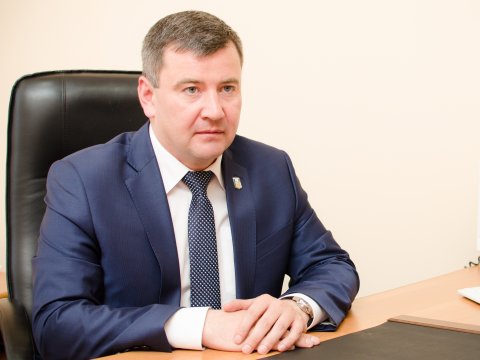The massive event is to take place on May 11th through 15th of 2019 in the city of Sian (China). South Ural State University is planning to sign a number of contracts on cooperation with higher education institutions of Shenxi province, and present a report on the topic of an integrated project entitled “Ecology”. This report summarizes ecological problems relevant for the two territories (Chelyabinsk region and Shenxi province), which are water, air and soil pollution with industrial wastes, and offers possible ways for their solution. SUSU’s Vice-Rector for Research Aleksandr Diakonov told us more details about the project.
– How long has the university been working on problems in the sphere of ecology?
– For SUSU, research on ecology has been one of the prioritized research over the last 10 years. We consider solutions of ecological issues for the Chelyabinsk region as well as for other industrial constituents of the Russian Federation. The university’s participation in the Silk Road EXPO is strategically important for the university’s development. In the frameworks of interaction with EXPO participants, SUSU is targeted at joint research work connected with advanced digital technologies, solutions in the sphere of ecology, intelligent manufacturing technologies, new materials, invention of systems for big data processing, machine learning and artificial intelligence, which is carried out on the basis of the infrastructure which the university has at its disposal.
– Which research areas does the Ecology project bring together?
– First of all, it is development of special sorbents which possess the ability to neutralize the harmful impact of heavy metals and radionuclides by turning into an inert mineral which is harmless for the environment.
Secondly, it is development of digital system for ecological monitoring of pollutants’ dissipation in the air, which can be visualized at an interactive map showing distribution of atmospheric pollutants.
Another important component of the project is development of new materials and technologies for “green” power engineering. For example, the university is working on invention of materials for solar batteries, which would allow enhancing their efficiency and reduce specific energy costs.
– Is there any practical application of the research?
– Yes, there is. SUSU has been actively implementing ecology-related projects together with enterprises and organisations of the Chelyabinsk region. Together with the Ministry of Ecology of the Chelyabinsk region, work is being done on determining the efficiency of events carried out in order to reduce the influence of polluted wastewater from the territory of Sak-Elga river on the quality of water in the Argazi Reservoir. New organic selenium- and sulfur-containing materials, which are organic semi-conductors and the basis of the new-generation solar batteries, are being developed. Together with ITMO University, Helmholtz Association (Die Helmholtz-Gemeinschaft (Germany)), and Tohoku University (Japan), nature-like technologies of synthesis of new functional materials, new magnetic materials with set properties, new materials with the shape memory effect and with thermoelectric effect are being created. SUSU scientists are developing a technology for PO Mayak Federal State Unitary Enterprise, intended to create sorbents which irreversibly bind ions of heavy metals and radionuclides. Work is being done in development of energy-efficient materials made of magnesium rocks and byproducts of mining industry for enterprises called Magnezit and Magniy of Siberian Business Company Group.
– Is it possible for SUSU scientific inventions to enter the Chinese market?
– Without a doubt, we are targeted at implementation of projects in accordance with demands of the Russian Federation and such foreign partners as People’s Republic of China. For example, in 2018, the university together with UralArm Project Group small innovative enterprise obtained a utility model patent CN 207848468 in China. Presently, under SUSU’s support, team of the enterprise is considering issues of the patent implementation as well as cooperation with industrial corporations of China, Chinese universities and leading scientists.
– What experience would you like to adopt from your Chinese partners?
– SUSU is implementing a number of projects financed by the Ministry of Science and Higher Education of the Russian Federation regarding fundamental and applied research as well as experimental development. Among breakthrough research are the projects regarding eco-friendly materials for the needs of resource-extracting industries and environmental technologies, human health, power efficiency, in-depth machine learning and artificial intelligence, mechanisms for sustainable development of industrial enterprises in the frameworks of ecological policy of the government.
A well-known fact about our Chinese colleagues is that they process solutions in these areas at the highest level. Respectively, these researches are prioritized for joint research carried out by our university with its Chinese colleagues.
SUSU is interested in cooperation with such organisations as Chinese Academy of Sciences: Key Laboratory of Wetland Ecology and Environment and Research Center for Eco-Environmental Sciences (Beijing, China), and with Sichuan University, College of Architecture and Environment (Chengdu, China) in the issues of controlling the quality of air and environmental situation in big cities, because nowadays this problem is especially pressing for residents of the Chelyabinsk region as well.




